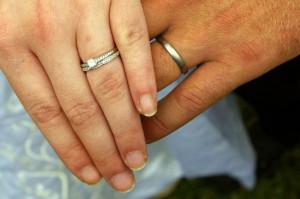 PIERRE, S.D. — A federal judge in South Dakota has struck down the state’s voter-approved marriage amendment which enshrines marriages as being solely between a man and a woman, opining that the law is unconstitutional because it excludes homosexuals from having the same opportunity.
PIERRE, S.D. — A federal judge in South Dakota has struck down the state’s voter-approved marriage amendment which enshrines marriages as being solely between a man and a woman, opining that the law is unconstitutional because it excludes homosexuals from having the same opportunity.
“Plaintiffs have a fundamental right to marry,” wrote Judge Karen Schreier, nominated to the bench by then-President Bill Clinton. “South Dakota law deprives them of that right solely because they are same-sex couples and without sufficient justification.”
Twelve homosexuals had filed suit last year, challenging the 2006 law, which was passed with 52 percent of the vote.
“Only marriage between a man and a woman shall be valid or recognized in South Dakota, the amendment, then known as “Amendment C,” reads. “The uniting of two or more persons in a civil union, domestic partnership, or other quasi-marital relationship shall not be valid or recognized in South Dakota.”
But Schreier ruled that the amendment does not serve a “compelling” government interest and violates the 14th Amendment to the United States Constitution, which outlines that states may not “deny to any person within its jurisdiction the equal protection of the laws.” She stayed her ruling pending appeal.
Homosexual advocacy groups applauded the decision.
“We are thrilled for our clients and for all same-sex couples in South Dakota, who have watched and waited as progress has been made in so many other states, and who can now see light at the end of the tunnel in their own state,” Chris Stoll with the National Center for Lesbian Rights told reporters. “We are also grateful to Judge Shreier for writing such a detailed and powerful analysis and for affirming in such strong terms that same-sex couples have the same fundamental freedom to marry as others.”
But South Dakota Attorney General Marty Jackley said that he will continue to fight the matter in court.
“It remains the state’s position that the institution of marriage should be defined by the voters of South Dakota and not the federal courts,” he said.
While South Dakota would mark the 36th state, plus the District of Columbia, to legalize same-sex “marriage,” not all courts have ruled that states must recognize homosexual nuptials.
“A dose of humility makes us hesitant to condemn as unconstitutionally irrational a view of marriage shared not long ago by every society in the world, shared by most, if not all, of our ancestors, and shared still today by a significant number of the states,” wrote Judge Jeffrey Sutton on behalf of the Sixth Circuit Court of Appeals last November.
“No one here claims that the states’ original definition of marriage was unconstitutional when enacted. The plaintiffs’ claim is that the states have acted irrationally in standing by the traditional definition in the face of changing social mores,” he continued. “[But] how can we say that the voters acted irrationally for sticking with the seen benefits of thousands of years of adherence to the traditional definition of marriage in the face of one year of experience with a new definition of marriage?”
Sutton also rebuffed claims that homosexual relationships were entitled to be recognized as marriages simply because they have feelings for each other.
“Their definition does too much because it fails to account for the reality that no state in the country requires couples, whether gay or straight, to be in love,” he said. “Their definition does too little because it fails to account for plural marriages, where there is no reason to think that three or four adults, whether gay, bisexual, or straight, lack the capacity to share love, affection, and commitment, or for that matter lack the capacity to be capable (and more plentiful) parents to boot.”
Become a Christian News Network Supporter...


